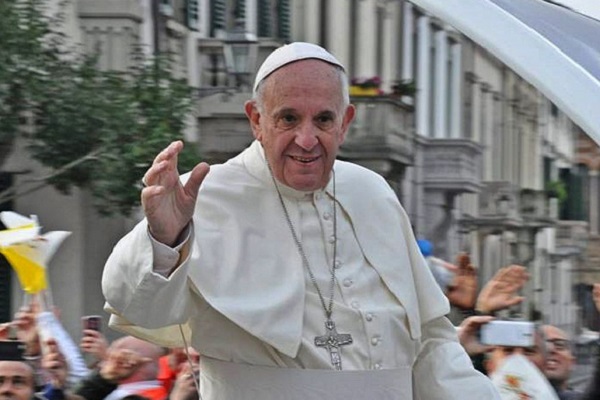
Pope Francis Warned Lithuania on the Resurgence of Anti-Semitism
- By Kelly Frazier --
- 25 Sep 2018 --

Lithuania has a chequered past when it comes to Nazism.
[tweeit]Pope Francis used decisive language to warn Lithuanians against the revival of anti-Semitic attitudes which in the past fueled the Holocaust.[/tweetit] The Nazi occupation of the country from 1941 to 1944 erased the country's Jewish population. Only 3,000 Jews survived the Nazi era from the 37,000 Jews which once lived in this East European nation. The pope's fears are well founded as xenophobia, and far-right political ideology are again making inroads into Lithuania.
Pope Francis Warned Lithuania on the Resurgence of anti-Semitism[/tweetthis]
Francis started the second day of his visit to Kaunas, the second biggest city in Lithuania, and the scene of the Jewish massacre. His trip ended in Vilnius, the capital city where he paid his respects to those Lithuanians deported to gulags in Siberia or killed and tortured inside their own homes during the 50-year Soviet occupation. The pope noted freedom fighters which once housed the headquarters of the KGB. He paid the same amount of tributes to the victims of both Soviet and Nazi atrocities on the 75th anniversary of the final Vilnius ghetto destruction. The city was once known as "Jerusalem of the North" due to its importance in Jewish politics and thought. The event itself is an annual affair. The anniversary falls on September 23, and the dead are commemorated with readings of names slaughtered by Nazis or the Lithuanian partisans deported to the concentration camps.
Francis is scheduled to travel to all three countries, Estonia, Lithuania, and Latvia in the Baltic region. The three countries will mark their 100th independence anniversaries. He aims to encourage faith in the region which witnessed about 50 years of Soviet repression and atheism encouraged and sponsored by the state. The Lithuanian population is 80 percent Catholic. Russian Orthodox and Lutherans are more in Estonia and Latvia.
The schedule of the papal trip changed in early September so Pope Francis could acknowledge the massacre of 250,000 Jews by Nazi occupiers. A few Lithuanians also participated in this genocide. The country is comfortable with its citizens' complicity with the Nazi cause during the Second World War. A number of Jewish activists accuse Lithuanians of an effort to revise history by equating the slaughtering of Jews with the executions and deportations of other Lithuanians at the time of Soviet occupation. This revisionist history finds an echo in the renaming of the Vilnius museum from the earlier name of "Genocide Museum" to "Museum of Occupations and Freedom Fights." The museum concentrates on the Soviet era and not the German one.



















